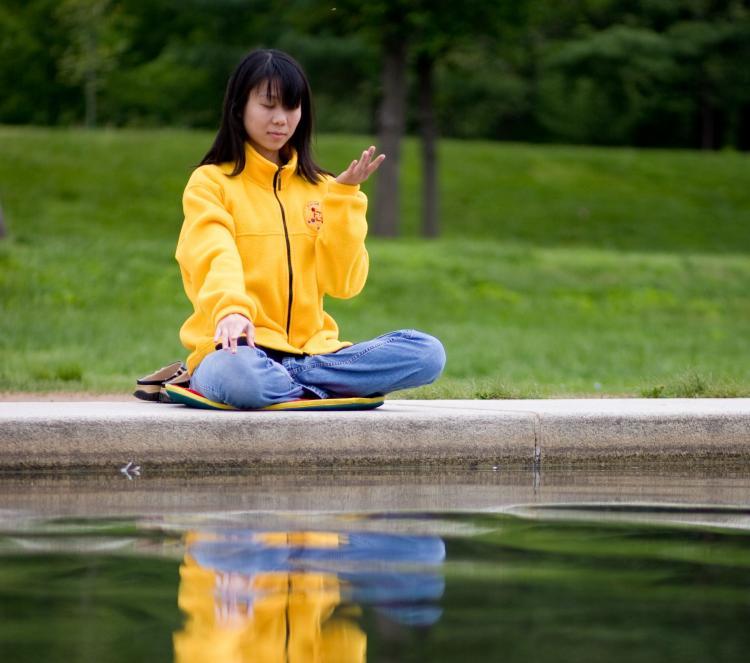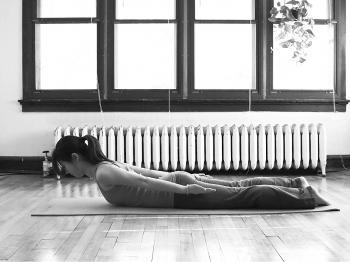Meditation is the best value package for your health because it gives you the most benefit for your time. Twenty minutes a day of mindfulness meditation provides inner peace, reduces disease risks, and can even add years to your life. Research shows promising evidence that meditation can slow down aging at the cellular level, prolonging your lifespan.
The origins of mindfulness meditation stem from the East and are rooted in spirituality. Historically, Buddhist practitioners use meditation as a process for integrating spiritual teachings to enlighten to the purpose of life and achieve ultimate spiritual freedom. Mindfulness meditation has been adapted in the West mainly as techniques to relieve physical and mental discomfort.
Despite its secular transformation, the practice of heightened mindfulness, or the ability to retain clear mental focus at any moment, can still delay the process of aging, according to a publication in the Annals of the New York Academy of Sciences last year.
Meditation’s ability to nurture positive emotions and its effectiveness as therapy for depression and stress relief has been documented in medical literature since the 1970s. The decrease in stress levels associated with meditation postpones cellular aging and death.
The cells in our body contain telomeres, which are small, protective caps at the end of DNA strands. Each time our cells divide, the telomeres shorten in order to safeguard DNA from damage. Scientists now widely accept the length of telomeres as a marker of cell age—the shorter the telomere, the older and more exhausted the cell and the whole organism.
Under pressure or in anxiety, our bodies release more stress-triggered hormones such as cortisol and catecholamines. Spikes in these hormones are linked to shortened telomeres, which signify physical aging.
Results from neural imaging tools and biochemical labs confirm that changes in brain activity caused by meditation also lower levels of these stress hormones. It is thought that this can lead to less snipping of telomeres and in essence prolong the lives of our cells.
The exact mechanisms of action are currently unmapped; researchers are still exploring this field of telomere biology.
The origins of mindfulness meditation stem from the East and are rooted in spirituality. Historically, Buddhist practitioners use meditation as a process for integrating spiritual teachings to enlighten to the purpose of life and achieve ultimate spiritual freedom. Mindfulness meditation has been adapted in the West mainly as techniques to relieve physical and mental discomfort.
Despite its secular transformation, the practice of heightened mindfulness, or the ability to retain clear mental focus at any moment, can still delay the process of aging, according to a publication in the Annals of the New York Academy of Sciences last year.
Meditation’s ability to nurture positive emotions and its effectiveness as therapy for depression and stress relief has been documented in medical literature since the 1970s. The decrease in stress levels associated with meditation postpones cellular aging and death.
The cells in our body contain telomeres, which are small, protective caps at the end of DNA strands. Each time our cells divide, the telomeres shorten in order to safeguard DNA from damage. Scientists now widely accept the length of telomeres as a marker of cell age—the shorter the telomere, the older and more exhausted the cell and the whole organism.
Under pressure or in anxiety, our bodies release more stress-triggered hormones such as cortisol and catecholamines. Spikes in these hormones are linked to shortened telomeres, which signify physical aging.
Results from neural imaging tools and biochemical labs confirm that changes in brain activity caused by meditation also lower levels of these stress hormones. It is thought that this can lead to less snipping of telomeres and in essence prolong the lives of our cells.
The exact mechanisms of action are currently unmapped; researchers are still exploring this field of telomere biology.







